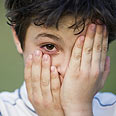
The results were released from an efficacy study in which 715 patients were either given a placebo, or two doses of Teva's drug, Qnasl, once daily for two weeks.
Allergic rhinitis is the most common cause of allergic diseases among children, according to the US National Institutes of Health. Commonly called hay fever, the condition affects the nose and is triggered when one breathes something one in allergic to.
Teva is testing the nasal aerosol in children aged 6 to 12 years. The drug was approved in the United States in March to treat seasonal allergic rhinitis and perennial allergic rhinitis in patients aged 12 years and older.
The drug was generally well-tolerated in children, Teva said.
"These data further showcase the drug's safety and efficacy profile in treating the pediatric population and could prove beneficial to the 40% of children in the US currently living with allergic rhinitis," William Storms, a practicing allergist and clinical professor at the University of Colorado Health Sciences Center, said in a statement provided by Teva.
The Israel-based company is the world's biggest generic drug maker and it also sells several women's health products and branded drugs for respiratory diseases, pain and cancer.
The drugmaker presented the results at the 2012 Annual Meeting of the American College of Allergy, Asthma and Immunology in Anaheim, California.















